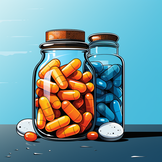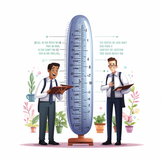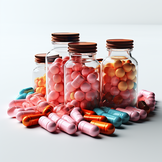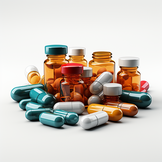What medications should not be taken with sildenafil or viagra?
- Introduction to Sildenafil and Viagra
- The Dangerous Interaction with Nitrates: Isosorbide Dinitrate, Isosorbide Mononitrate, and Nitroglycerin
- The Importance of Informing Your Doctor about All Medications
- Riociguat
- The Risk of Combining Sildenafil with Alcohol
- Clarithromycin
- Interactions with Other Medications: Riociguat, Vericiguat, Ritonavir, Clarithromycin, Ketoconazole
- Over-the-Counter Medications, Herbal Products, and Supplements
- Possible Alternatives Prescribed by Your Doctor
- Related Questions

Introduction to Sildenafil and Viagra
Sildenafil, marketed under the brand name Viagra among others, is primarily used to treat erectile dysfunction and pulmonary arterial hypertension. It works by enhancing blood flow to specific areas of the body, particularly the penis in men, thereby facilitating an erection when a man is sexually aroused. However, like all medications, sildenafil must be used responsibly due to potential interactions with other drugs.
The Dangerous Interaction with Nitrates: Isosorbide Dinitrate, Isosorbide Mononitrate, and Nitroglycerin
Nitrates such as isosorbide dinitrate, isosorbide mononitrate, and nitroglycerin are commonly used to alleviate chest pain associated with heart conditions. When taken with sildenafil, these can lead to a significant decrease in blood pressure, resulting in dizziness, fainting, heart attacks, or even stroke. This interaction can occur even if the nitrate use is infrequent or happens long after sildenafil use.
The Importance of Informing Your Doctor about All Medications
Given the risk of drug interactions with sildenafil, it's vital to inform your healthcare provider about all the medications you're currently taking, including over-the-counter drugs, supplements, and herbal products. This ensures that the benefits of taking sildenafil outweigh the potential risks and that any adjustments to your medication regimen can be done safely.
Riociguat
Riociguat, used to treat pulmonary arterial hypertension and chronic thromboembolic pulmonary hypertension, can also dangerously interact with sildenafil. Both drugs affect the nitric oxide pathway, and when combined, they can result in an excessive drop in blood pressure.
The Risk of Combining Sildenafil with Alcohol
Excessive alcohol intake while on sildenafil can increase the risk of side effects like dizziness, headaches, increased heart rate, and a decrease in blood pressure. Moderate alcohol consumption is generally safe but excessive or binge drinking should be avoided.
Clarithromycin
Clarithromycin, an antibiotic, can interact with sildenafil by inhibiting the enzymes that break down sildenafil in the body, resulting in increased levels of sildenafil. This can enhance the likelihood of experiencing side effects of sildenafil, which include headaches, flushing, and changes in vision.
Interactions with Other Medications: Riociguat, Vericiguat, Ritonavir, Clarithromycin, Ketoconazole
Other medications such as vericiguat, used for heart failure, ritonavir, an antiretroviral, and ketoconazole, an antifungal, can all potentially interact with sildenafil. These medications can increase the concentration of sildenafil in the blood, amplifying its effects and side effects.
Over-the-Counter Medications, Herbal Products, and Supplements
Over-the-counter drugs, herbal products, and supplements can also interact with sildenafil. Some herbal products, particularly those marketed for erectile dysfunction or sexual enhancement, may contain compounds that can interact with sildenafil. Always consult your healthcare provider before starting any new over-the-counter medication, supplement, or herbal product.
Possible Alternatives Prescribed by Your Doctor
In case of potential interactions, your doctor might prescribe alternatives to sildenafil. These might include other drugs for erectile dysfunction or pulmonary arterial hypertension that have a lower risk of interactions, depending on your overall health condition and other medications.
Related Questions
When it comes to combining sildenafil with other medications, several questions often arise. Many ask, "What are the side effects of taking sildenafil with nitrates?" As mentioned above, combining these can lead to a dangerous drop in blood pressure, potentially causing dizziness, fainting, or even a heart attack.
Another question is, "What medications react badly with Viagra?"
Many of these have been listed above, including nitrates, riociguat, vericiguat, ritonavir, clarithromycin, and ketoconazole, among others.
A frequently asked question is, "What painkiller can I take with sildenafil?" Over-the-counter painkillers like acetaminophen and ibuprofen are generally safe to take with sildenafil, but always check with your doctor.
Some ask, "Can you take sildenafil and blood pressure medicine together?" In many cases, sildenafil can be safely taken with blood pressure medications, but it depends on the specific medication. Certain blood pressure medications can increase the effects of sildenafil, potentially leading to side effects.
As for the question, "How long do you stay hard with sildenafil?" It varies among individuals but generally, the effects of sildenafil last for up to four hours. However, an erection should not last for more than four hours, and if it does, medical attention should be sought immediately.
Finally, "What is the recommended dosage of sildenafil?" The starting dose for sildenafil is typically 50 mg, but it can be adjusted by your doctor based on your response to the medication. Always follow your doctor's instructions when taking sildenafil.



